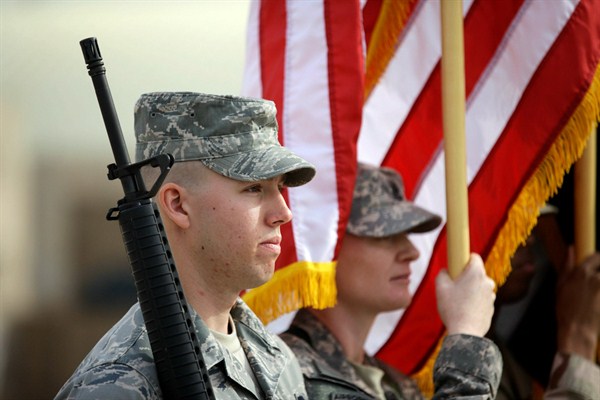The U.S. military doesn’t spend much time thinking about how America could lose a war. Neither do America’s political leaders and security experts. Whether described in operational plans, strategic wargames or even fiction, the pattern mirrors the Civil War or World War II: Things are hairy at first and defeat even seems possible since an aggressor struck first, but then the United States gets serious, turns the tide and fights its way to victory. In the collective American memory, armed conflicts that have not followed this script—Vietnam, Korea—are largely forgotten or attributed to political ineptitude. Victory is still considered the norm.
While optimism is a laudable characteristic, it can be dangerous if not tempered by cold realism. The United States should plan and hope for victory in war but also needs to think about how it could be defeated. After all, America’s potential adversaries are certainly doing so.
Of course, predicting specific events in the future security environment is impossible. There is simply too much complexity and too much uncertainty in human decisions, particularly when something as important as armed conflict is under consideration. Nearly every war in history surprised political leaders, experts, planners and prognosticators. Nonetheless, thinking about future war is important since it provides at least a chance to prevent or limit it. It is both the bane of strategists and an obligation.

